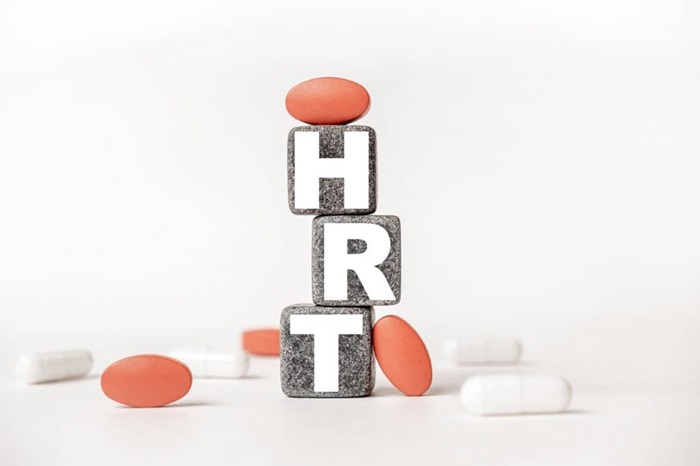Hormone replacement therapy (HRT) has been a topic of significant interest, especially among women experiencing menopausal symptoms. One common question that arises is why HRT can aid in weight loss. This article will explore the relationship between HRT and weight, looking at the different types of HRT, how hormones affect the body’s metabolism, and the current research findings.
Understanding HRT
What is HRT?
Hormone replacement therapy involves taking hormones, usually estrogen and progesterone (in women with a uterus) or just estrogen (in women who have had a hysterectomy), to replace the hormones that the body’s ovaries no longer produce in sufficient amounts during menopause. There are also different forms of HRT, including pills, patches, gels, and vaginal creams. Each form has its own way of delivering hormones into the body and may have varying effects on overall health.
Types of Hormones Used
Estrogen is a key hormone in HRT. It has multiple functions in the body, including effects on the cardiovascular system, bones, and the reproductive tract. Progesterone is often added to protect the uterus from potential negative effects of unopposed estrogen. Testosterone may also be considered in some cases, especially when there are concerns related to libido and energy levels.
Hormones and Metabolism
Estrogen’s Role: Estrogen has been shown to play a role in regulating body weight. During the reproductive years, estrogen helps maintain a healthy body weight by influencing fat distribution. It tends to promote the storage of fat in the hips and thighs rather than the abdomen. As estrogen levels decline during menopause, there can be a shift in fat distribution towards the abdominal area, which is associated with a higher risk of metabolic syndrome and cardiovascular disease. Some studies suggest that restoring estrogen through HRT may help in reducing this abdominal fat accumulation.
Progesterone’s Impact: Progesterone also has metabolic effects. It can affect appetite and may have an impact on how the body uses energy. In some women, progesterone can cause fluid retention and weight gain, but this effect varies from person to person. In the context of HRT, the balance between estrogen and progesterone is crucial in determining the overall impact on weight.
Testosterone and Weight: Testosterone is important for muscle mass and metabolism. In men, lower testosterone levels are associated with weight gain and a decrease in muscle mass. In women, although testosterone levels are much lower than in men, they still play a role. During menopause, testosterone levels may decline, and this can contribute to a decrease in muscle strength and potentially an increase in body fat. Testosterone replacement as part of HRT may help in improving muscle mass and metabolic rate, which could indirectly affect weight.
Research Findings on HRT and Weight Loss
Conflicting Results: Research on the effect of HRT on weight loss has been somewhat inconsistent. Some studies have shown that women on HRT may experience a small reduction in abdominal fat or a stabilization of weight. For example, a study that followed women over several years found that those on HRT had a slower rate of increase in body mass index compared to those not on HRT. However, other studies have not found a significant difference in weight between women on HRT and those not.
Factors Affecting Results: The type of HRT used, the duration of treatment, and individual differences among women can all influence the outcome. Women who start HRT closer to the onset of menopause may have different results compared to those who start later. Additionally, lifestyle factors such as diet and exercise play a major role. A woman who is on HRT but has a sedentary lifestyle and a poor diet is less likely to see any positive impact on weight compared to one who is physically active and eats a balanced diet.
Long – Term Considerations: In the long term, the potential risks and benefits of HRT need to be carefully weighed. While there may be some potential benefits in terms of weight management in the short to medium term, there are also concerns about the increased risk of certain health problems with long – term HRT use, such as breast cancer, blood clots, and stroke. Therefore, decisions about HRT should be made in consultation with a healthcare provider.
Lifestyle and HRT Interaction
Diet: A healthy diet is essential when considering HRT and weight loss. A diet rich in fruits, vegetables, whole grains, and lean proteins can help support the body’s metabolism and overall health. Women on HRT should be mindful of their calorie intake and aim for a balanced diet. For example, consuming foods high in fiber can help with satiety and may prevent overeating.
Exercise: Regular physical activity is crucial. Exercise can help increase muscle mass, boost metabolism, and improve cardiovascular health. Combining aerobic exercises like walking, running, or swimming with strength training can be especially beneficial. Strength training can help counteract the loss of muscle mass that may occur during menopause and with or without HRT. Even simple exercises like bodyweight squats and push – ups can be effective in building and maintaining muscle.
Conclusion
The relationship between taking HRT and weight loss is complex. While there may be some potential for HRT to have a positive impact on weight by influencing fat distribution and metabolism through hormonal regulation, the evidence is not conclusive. The effects can vary greatly depending on the type of HRT, individual factors, and lifestyle. It is important for women considering HRT for weight – related reasons to have a thorough discussion with their healthcare provider. Lifestyle modifications, including a healthy diet and regular exercise, remain fundamental in managing weight during and after menopause, whether or not HRT is part of the treatment plan. Additionally, the long – term risks associated with HRT should be carefully evaluated to make an informed decision that balances potential benefits and potential harm to overall health.
Related topics:


